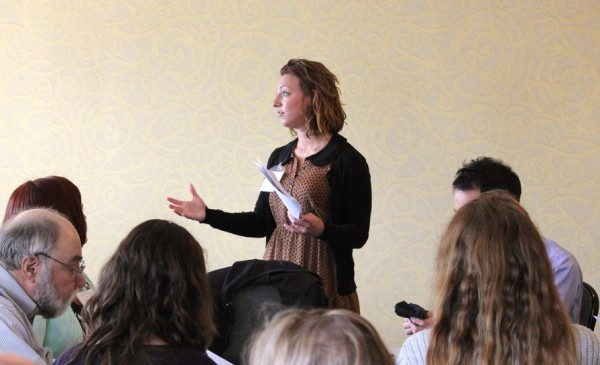- October 2025 (2)
- September 2025 (1)
- August 2025 (1)
- July 2025 (4)
- June 2025 (1)
- August 2024 (1)
- July 2024 (1)
- May 2024 (1)
- March 2024 (1)
- February 2024 (1)
- January 2024 (2)
- December 2023 (2)
- November 2023 (1)
- October 2023 (2)
- August 2023 (1)
- May 2023 (1)
- February 2023 (1)
- January 2023 (2)
- October 2022 (1)
- September 2022 (2)
- June 2022 (3)
- May 2022 (1)
- March 2022 (1)
- December 2021 (1)
- October 2021 (1)
- September 2021 (2)
- July 2021 (1)
- June 2021 (5)
- March 2021 (1)
- January 2021 (1)
- December 2020 (1)
- October 2020 (2)
- July 2020 (1)
- June 2020 (2)
- April 2020 (2)
- March 2020 (2)
- January 2020 (1)
- December 2019 (1)
- November 2019 (1)
- October 2019 (1)
- September 2019 (2)
- August 2019 (1)
- July 2019 (1)
- June 2019 (2)
- May 2019 (1)
- April 2019 (2)
- March 2019 (1)
- December 2018 (1)
- November 2018 (1)
- October 2018 (3)
- September 2018 (1)
- July 2018 (2)
- June 2018 (1)
- May 2018 (3)
- April 2018 (3)
- February 2018 (1)
- November 2017 (3)
- October 2017 (1)
- May 2017 (3)
- April 2017 (3)
- March 2017 (1)
- February 2017 (1)
- January 2017 (1)
- September 2016 (2)
- August 2016 (1)
- June 2016 (2)
- May 2016 (2)
- April 2016 (2)
- March 2016 (2)
- February 2016 (2)
- January 2016 (1)
- September 2015 (2)
- August 2015 (1)
- May 2015 (2)
- December 2014 (3)
- October 2014 (1)
- July 2013 (1)
Northwest Center for Public Health Practice
Anne Althauser: Investing in Early Childhood Initiatives

The Strategic Analysis, Research and Training (START) domestic program recently completed its first round of faculty-student projects. In part one of this two-part series, Research Assistant Anne Althauser speaks about her work and the lessons she learned through the project.
Many public health students crave hands-on experiences to expand their skills and make them more marketable to future employers. Students in the Strategic Analysis, Research and Training (START) domestic program, housed at NWCPHP and launched last fall, were able to do this recently by completing the program’s first rapid consultation projects.
The first installment of this series features Research Assistant Anne Althauser and her work with public sector leaders in King County, Washington on the Best Starts for Kids project. For this project, Althauser was mentored by Health Services Assistant Professor Jennifer Otten, PhD, RD.
Best Starts for Kids
Over the course of five months, Anne Althauser studied government-funded prevention initiatives around the country to learn what political climates, community engagement, and communication strategies led to their approval by voters. Her research will help local officials prepare the Best Starts for Kids levy, which supports early childhood investments and will be presented to King County voters later this year.
The risk for many chronic diseases in adulthood can be reduced by improving health in the prenatal and early childhood periods, said NWCPHP Director Tao Sheng Kwan-Gett, MD, MPH. The domestic START team was excited to contribute to an initiative which has the potential to improve health in our local communities.
Through the project, Althauser learned about the importance of early childhood education and how people across the US are turning their attention to this topic. One of the most important things she learned is that there is no right way to fund and implement early childhood programs.
There really is no one-size-fits-all way to do this, she said. These types of initiatives vary greatly depending on location, political environments, funding, and more.
Althauser conducted 26 program reviews and 15 in-depth interviews, of which she presented a summary to local government leaders. It was wonderful to connect with people equally as excited about this topic and eager to advise King County on what worked for them, she said.
Picking up the phone and calling people is a great skill, and one that feels lost now in the tech age. I gained so much more from calling folks and making that interpersonal connection than by simply looking for information online.”
The interviews taught her that communication is the most important element in gaining public support for early childhood campaigns. Messaging around the potential return on investment is also critical.
Through this experience, Althauser gained a deeper understanding of public health policy. There are many stakeholders involved, and what works in one place may not work in another,” she said. “I continually heard about the importance of being transparent with the public and encouraging their involvement in decision-making. These are things I will definitely remember and apply when working in public health policy in the future.
With the first domestic START projects wrapping up this spring, Althauser will graduate with her MPH and look for similar project-based consultation work. Kwan-Gett feels that the Domestic START program has had a strong launch. Thanks to our partnership with Public Health – Seattle & King County and the fantastic mentorship by our faculty Jennifer Otten and Ali Rowhani-Rahbar, our research assistants have had a great educational experience that will help them hit the ground running on future public health practice projects.
Read this article in its original format on the Northwest Center for Public Health Practice website.
Photo credit: Northwest Center for Public Health Practice
Did you enjoy this aricle? Share it Facebook Google+ LinkedIn Twitter